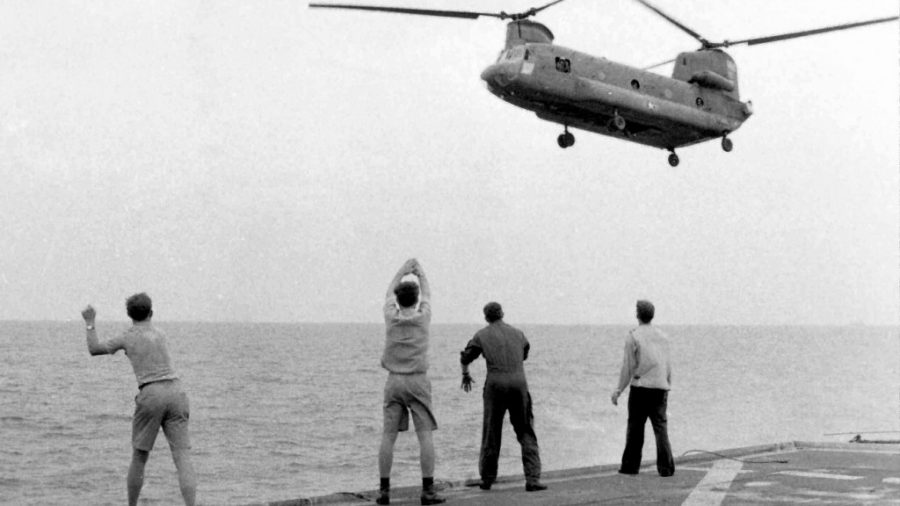
 “If there was something new to be said [about the Vietnam War], I didn’t immediately see what it was”, Rory Kennedy revealed in an interview. As she underlines it, the topic is very well documented. She quotes as an example the famous TV series Vietnam: A Television History, which is, according to her, “the gold standard for survey documentaries about the war’s entirety”. Indeed, most of studies about the Vietnam War are about the whole war and surprisingly not about its end. Thirty years after this series, the same TV program, American Experience, approached Kennedy for a new documentary that would focus on this more unknown part of the conflict.
“If there was something new to be said [about the Vietnam War], I didn’t immediately see what it was”, Rory Kennedy revealed in an interview. As she underlines it, the topic is very well documented. She quotes as an example the famous TV series Vietnam: A Television History, which is, according to her, “the gold standard for survey documentaries about the war’s entirety”. Indeed, most of studies about the Vietnam War are about the whole war and surprisingly not about its end. Thirty years after this series, the same TV program, American Experience, approached Kennedy for a new documentary that would focus on this more unknown part of the conflict.
April 1975. Once South Vietnamese and American resistance crumbled and the North Vietnamese Army surrounded Saigon, the capital city, the Communist victory seemed inevitable. Last days in Vietnam shows the last secret negotiations about the end of the war, and particularly the possible evacuation of part of the South Vietnamese people. The U.S. ambassador dismissed this solution, but as all the accounts shown in the movie reveal, the situation was actually way more complex. Indeed, what this movie aims to show is that American officers, despite all they did in the beginning of the war, had a heart. The interviews of navy or air force officers and diplomats highlight the moral dilemma they had to face – whether to follow the official instructions, or whether to save thousands of Vietnamese – and their effort to save as many lives as possible. These interviews are cleverly illustrated by archival footage such as amateur shots, news, and official US films. The wealth and the diversity of these images are, for sure, the most remarkable aspect of Last Days in Vietnam. The juxtaposition of these images from varied origins gives an interesting result, multiplying and opposing points of view.
However, Kennedy sometimes tends to use them only as illustrations for his interviews instead of letting their evocative power speak for itself – at risk of making her documentary didactic. She likewise uses interactive maps to show the army progression or the military plans. This naturally helps the viewer with understanding military strategies but betrays the director’s pedagogic ambition. Kennedy does not take any risks with the structure of the movie either.
It is indeed very clear, following the chronological order of events. Moreover, temporality narrows while the movie progresses: the temporal unit is first the month, then the day and finally the last hours. While some parts of the movie can be long-winded because of the repetitiveness of editing (the alternation between interviews and archival footage), this rhythm effect does make the end of the movie all the more enthralling.
Last Days in Vietnam is a very interesting documentary as far as its subject matter is concerned, thanks to the varied interviews and footage used throughout the movie. But the lack of inspiration of the directing and the editing is regrettable, all the more as Kennedy had enough material to avoid repetition.